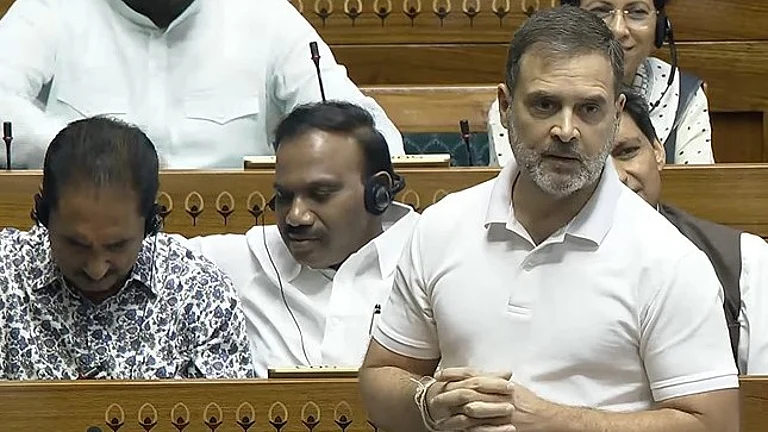
Summary of this article
National Sports Governance Bill and the National Anti-Doping (Amendment) Bill has been passed by Lok Sabha
Sports Minister Mansukh Mandaviya called the former the "single biggest reform in Indian sports" since independence
The Bill comes in the backdrop of India's bid for the 2036 Olympic Games
Lok Sabha on Monday approved the 'long-awaited' National Sports Governance Bill and the National Anti-Doping (Amendment) Bill. Sports Minister Mansukh Mandaviya called the former the "single biggest reform in Indian sports" since independence. These measures aim to create a 'transparent' and 'world-class sports ecosystem', even as opposition members staged protests.
Government Pushes for 'Accountability' and Good Governance in Sports
Sports Minister Mansukh Mandaviya tabled the National Sports Governance Bill, describing it as the "single biggest reform in sports since independence". He explained the bill will "ensure accountability" and "best governance in sports federations", alongside delivering "justice". The minister acknowledged its "massive significance in India's sports ecosystem".
Opposition leaders were absent during the bill's introduction and passage; authorities detained many while they marched towards the Election Commission headquarters to protest the special intensive revision of Bihar's electoral rolls and alleged voter data fudging.
Though two MPs participated in the consideration debate to support the bill, opposition members later returned to the House, raising slogans. Despite the commotion, the bills passed by a voice vote before the House adjourned until 4 PM.
National Sports Governance Bill: Key Provisions and Objectives
The government seeks a "transparent, accountable and world-class sports ecosystem" as India prepares to bid for the 2036 Olympic Games. Mandaviya traced the bill's journey, stating efforts began in 1975, with a first draft in 1985.
"Sports was also politicised for personal gains. Some ministers made efforts to bring this bill but could not move forward." He recalled a 2011 National Sports Code that "reached the cabinet" but was "deferred after that" and "did not reach the Parliament". The minister described the National Sports Governance Bill as a "force of change", adding, "Despite being such a large country, our performance at the Olympic Games and on the international stage has not been satisfactory." This bill aims to bolster India's sports capabilities.
A National Sports Board (NSB) will be established to create a stringent accountability system. All National Sports Federations (NSFs) must secure NSB recognition to access central government funding. The NSB can de-recognise an NSF for failing to holdExecutive Committee elections, committing "gross irregularities in the election procedures", failing to publish annual audited accounts, or misusing public funds. The NSB must consult the pertinent global body before acting.
Separately, the bill proposes a National Sports Tribunal, which will possess civil court powers to adjudicate disputes, from athlete selection to federation elections.
One can only challenge the Tribunal's decisions in the Supreme Court. The bill also amends the age cap for administrators, allowing those aged 70-75 to contest elections if concerned international bodies permit it, departing from the previous 70-year limit under the national sports code. The bill's statement of objectives notes, "…as a part of the preparatory activities for the bidding of Summer Olympic Games 2036, it is imperative that the sports governance landscape undergo a positive transformation to bring better outcomes, sporting excellence and aids in improved performance in major international competitions."
Addressing Doping Concerns: Anti-Doping Bill Incorporates WADA Mandates
The National Anti-Doping (Amendment) Bill-2025 incorporates changes requested by the World Anti-Doping Agency (WADA). WADA had objected to "government interference" in the functioning of India's National Anti-Doping Agency (NADA).
The original act, passed in 2022, remained unimplemented due to these objections. The global body specifically opposed the previously established National Board for Anti-Doping in Sports. This Board, comprising a chairperson and two central government-appointed members, was empowered to recommend anti-doping regulations to the government, oversee NADA, and issue directions.
WADA rejected this provision, viewing it as government interference in an autonomous body. While the amended bill retains the Board, it removes its powers to oversee NADA and its advisory role. The amended bill thus affirms NADA's "operational independence".





















